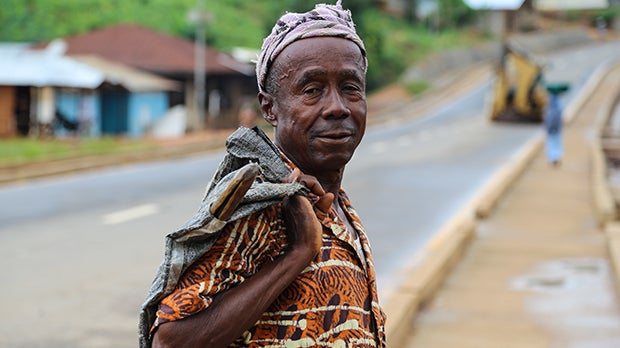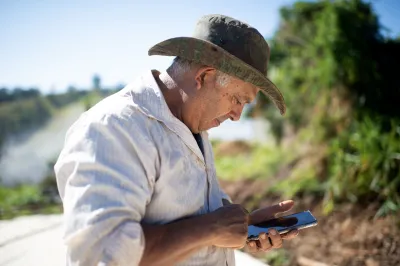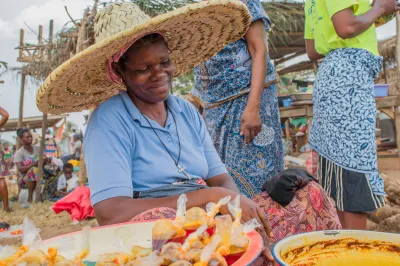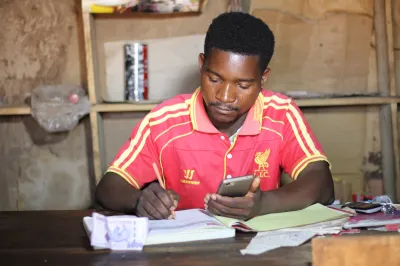What Can We Learn from Sierra Leone’s New Regulatory Sandbox?
Sierra Leone is perhaps not an obvious place to find experimentation with novel regulatory approaches to financial technology. A fragile state that is still, in some ways, recovering from an Ebola outbreak in 2014 and a decade-long civil war, the West African nation has one of the lowest financial inclusion rates in the world. According to the 2017 Global Findex, fewer than 20 percent of adults have a financial account – less than half the average for Sub-Saharan Africa. And yet today, after months of planning, the Bank of Sierra Leone (BSL) unveiled the inaugural cohort of its regulatory sandbox pilot program.

Over the next 12 months, cohort participants will work with a dedicated, cross-functional regulatory sandbox team within BSL to test and evaluate regulatory aspects of their respective technologies and business models. The pilot program is expressly linked to Sierra Leone’s ongoing effort to promote financial innovations, in partnership with in-country facilitators from UNCDF’s MM4P program and FSD Africa.
With four companies ready to begin testing in the pilot program, the real work now begins. In the coming weeks, the BSL sandbox committee will work with the cohort to refine testing plans, articulate performance metrics and identify additional resources needed to adequately supervise participants. The internal governance process established by BSL requires periodic reporting by participants to the sandbox team and aggregated reporting and oversight by a sandbox committee, led by Governor Patrick Saidu Conteh.
From our perspective, Sierra Leone’s approach to setting up a regulatory sandbox has been measured and thoughtful. From the start, BSL committed to using the sandbox as a learning tool to inform an innovative approach to financial inclusion. The Bank has devoted significant and dedicated resources to ensure the pilot program is well-managed, participants appropriately supervised and emergent risks anticipated and managed. Perhaps most importantly, commitment to the pilot program has come from the highest levels of BSL, with governor-level reporting and supervision. While it is still early days, the program reflects numerous design choices that financial regulators should consider when evaluating their own regulatory sandbox initiatives:
- Financial inclusion objective. Sierra Leone follows in the footsteps of Malaysia’s Bank Negara and other jurisdictions that have linked their sandbox programs to national financial inclusion strategies. While many sandbox initiatives have painted their innovation objectives with a broad brush, articulating a discrete financial inclusion objective potentially provides greater opportunities for measuring and monitoring the performance of sandbox programs as instruments of policy. The pilot program is expressly linked to Sierra Leone’s National Financial Inclusion Strategy 2017 - 2020. BSL designed the regulatory sandbox as a dedicated regulatory environment to facilitate new business models that have clear potential to benefit Sierra Leone’s consumers and advance its financial inclusion strategy.
- Coordination with ecosystem-building initiatives. As voluntary regulatory programs, sandboxes require interest and participation from market actors. While sandboxes have generated tremendous conceptual interest in many countries, several forward-leaning sandbox jurisdictions have reported little or no uptake by innovators. For example, Australia’s Securities and Investment Commission reported only a single applicant to its regulatory sandbox during its first six months of operation. It is essential, therefore, to assess the local FinTech landscape before launching a sandbox initiative, as level of demand will impact the design of the sandbox framework and perhaps even the decision to launch a sandbox in the first place. In Sierra Leone, BSL leveraged insights from the FinTech Challenge and engagement with the Sierra Leone FinTech Association to confirm market demand for a regulatory sandbox and to tailor the framework to meet that demand. It found substantial interest in the regulatory sandbox from nearly two dozen Sierra Leone firms that engaged with the FinTech Challenge and provided thoughtful commentary during the public consultation.
- Dedicated, cross-functional team. Several regulatory sandboxes — including those sponsored by the UK Financial Conduct Authority and the Monetary Authority of Singapore — have benefited from having dedicated staff. But such arrangements have been far less common outside of more developed economies. Given the limitations of a fragile state environment, BSL has made a remarkable commitment of internal resources to the pilot program, designating a full-time, cross-functional sandbox team with primary responsibility for all sandbox-related activities – from market outreach to participant selection and supervision.
- Institutional commitment and leadership. From the start, the pilot program has benefited from deep institutional engagement and support, starting with the Office of the Governor. The value of institutional commitment should be obvious, but it’s particularly essential for sandbox initiatives, which can be controversial in the abstract, cut across multiple regulatory perimeters and require a different, more collaborative, type of engagement with market participants.
- Sunset provision. Sierra Leone’s pilot program requires review and reauthorization after the initial one-year pilot term. Compared to other initiatives around the world, this is a subtle and elegant feature, conveying BSL’s willingness to experiment and learn from new regulatory approaches.
In this sandbox pilot program, we see tangible indications of regulatory change through thoughtful engagement with the local ecosystem and linkages with growing international communities of practice for sharing lessons learned. While it is still too early to tell whether sandbox activities around the world will produce any lasting impact on technology innovation, the commitment to learning and engagement with the local entrepreneurial communities demonstrated by BSL sends a positive message for the future of financial inclusion in Sierra Leone.




Comments
An update on the Australian
An update on the Australian regulatory sandbox see http://asic.gov.au/for-business/your-business/innovation-hub/regulatory…. And note that there are now 5 entities using the FinTech licensing exemption: http://asic.gov.au/for-business/your-business/innovation-hub/regulatory…
Add new comment